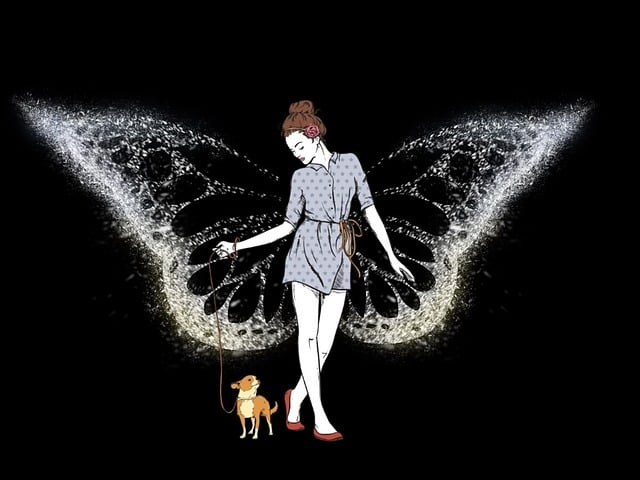Unraveling the enigma behind "Puppy Dreams Unveiled: Is It a Puppy Mill?" – a captivating journey delving into the world of dog breeding.
1. Unveiling the Dark Side: Uncovering Puppy Mills
When it comes to our furry companions, there is nothing more heartwarming than welcoming a new puppy into our lives. However, beneath the surface of these innocent furry faces lies a grim reality that demands our attention. Puppy mills, the well-kept secret of the pet industry, are breeding grounds for inhumane treatment, exploitation, and heartbreak.
So, how can you determine if that adorable puppy you have your eyes set on comes from a puppy mill? Here are some telltale signs to look out for:
- Quantity over Quality: Puppy mills focus solely on profit, churning out as many puppies as possible without regard for their health or well-being.
- Poor Living Conditions: Puppies from mills are often housed in deplorable conditions, cramped in filthy, overcrowded cages with little to no socialization.
- Lack of Transparency: Reputable breeders take pride in their work and are open about their practices. Puppy mills, on the other hand, hide behind a veil of secrecy, making it difficult to trace the origin of their puppies.
It’s important to remember that by purchasing a puppy from a mill, you are unknowingly supporting this dark industry. By raising awareness and making informed choices, we can all play a part in eradicating puppy mills and ensuring a brighter future for our beloved four-legged friends.
2. Identifying the Warning Signs: How to Recognize a Puppy Mill
Picture this: fluffy puppies frolicking in a meadow, their playful barks filling the air with joy. It’s the stuff of puppy dreams – or is it? Unfortunately, behind the scenes, some establishments are tarnishing these dreams. Puppy mills, the dark corners of the pet industry, operate purely for profit, disregarding the welfare of these precious creatures. So, how can we uncover these heartless operations? Here are some red flags to look out for:
- Quantity over quality: Puppy mills are all about numbers. They prioritize churning out as many pups as possible, with little regard for the wellbeing of the animals. If you come across a breeder selling an excessive number of different dog breeds, that’s a major warning sign.
- Lack of transparency: Reputable breeders take pride in their work and are more than happy to show you their facilities, breeding pairs, and medical records. On the flip side, puppy mills tend to hide their operations behind closed doors. If a breeder is unwilling to let you see where the puppies were born and raised, alarm bells should be ringing.
- Unhealthy conditions: Puppy mills often keep their animals in cramped, filthy environments, devoid of proper socialization or veterinary care. If the puppies appear lethargic, sickly, or have been separated from their mother too soon, it’s a telltale sign of a puppy mill.
Don’t let the glimmer of those puppy eyes deceive you. By staying vigilant and recognizing the warning signs, we can help put an end to these heart-wrenching puppy mills. Together, we can ensure that every pup gets the loving start in life they deserve.
3. Behind the Scenes: Exploring Puppy Mill Operations
Puppy Dreams Unveiled: Is It a Puppy Mill?
Step into the mysterious world behind the adorable facade of puppy sales, and you’ll find a dark reality: puppy mills. These operations, shrouded in secrecy, produce puppies for profit without regard for their welfare. Let’s explore the grim truth and uncover the hidden horrors that many unsuspecting pet lovers may never know about.
1. Health and Genetic Issues: Behind those innocent puppy eyes lay a sea of hidden health problems resulting from irresponsible breeding practices. Puppy mills prioritize quantity over quality, leading to a host of genetic disorders, physical deformities, and chronic diseases that can plague innocent puppies throughout their lives.
2. Living Conditions: Brace yourself, for what you are about to discover is heart-wrenching. Cramped, unsanitary cages become the grim reality for countless breeding dogs in puppy mills. These dogs are often denied proper veterinary care, exercise, socialization, and even a warm bed to sleep on. Their sole purpose is to produce puppies for profit, enduring a life devoid of love and care.
3. Emotional Trauma: Imagine never knowing what it feels like to be loved, cuddled, or comforted. Puppy mill dogs suffer intense emotional trauma due to their harsh living conditions. The lack of human interaction and nurturing leads to fearful and psychologically damaged dogs, making it extremely challenging for them to adapt to a normal life even after their rescue.
4. Understanding the Impact: Consequences of Supporting Puppy Mills
Have you ever wondered where that adorable puppy in the pet store came from? Behind those playful eyes and wagging tail may lie a harsh reality: puppy mills. These commercial breeding facilities prioritize profit over the well-being of dogs, leading to detrimental consequences for both the animals and unsuspecting buyers. Delve into the hidden world of puppy mills and discover why supporting them should never be an option.
1. Animal Cruelty: Puppy mills are notorious for subjecting dogs to appalling conditions. Confined to cramped, filthy spaces devoid of proper care, these innocent animals suffer untold physical and emotional distress. Lack of socialization, inadequate veterinary care, and overbreeding contribute to a multitude of health problems, making these dogs more prone to genetic disorders and behavioral issues.
2. Encouraging Exploitative Practices: By purchasing a puppy from a pet store or online source without conducting thorough background checks, unwitting consumers inadvertently fuel the demand for puppies from puppy mills. This perpetuates a vicious cycle of cruelty and incentivizes breeders to continue their unethical practices, ensuring these innocent creatures continue to suffer in deplorable conditions.
3. Financial Implications: Supporting puppy mills not only harms animals but also impacts your pockets. Unfortunately, many dogs from puppy mills have undiagnosed health issues, causing their owners to bear hefty veterinary bills. Furthermore, the lack of proper breeding practices means that the puppies bought from these facilities may develop medical conditions that require long-term care, adding to the financial burden. Choosing a responsible breeder or adopting from a shelter can contribute to a more affordable and compassionate pet ownership experience.
5. Shedding Light on Responsible Breeders: Knowing the Difference
When it comes to bringing a new furry friend home, responsible breeding is of utmost importance. After all, our puppy dreams should not be tainted by the horrors of puppy mills. But how can we distinguish between a responsible breeder and a puppy mill? Let’s shed some light and explore the key differences.
1. Environment:
- Responsible breeders prioritize the well-being of their dogs, providing them with clean and spacious living conditions.
- Puppy mills, on the other hand, often subject their dogs to overcrowded and unsanitary conditions, resulting in poor health and behavioral issues.
2. Breeding Practices:
- Responsible breeders carefully select pairing dogs based on health, temperament, and breed standards to ensure healthier offspring.
- Puppy mills prioritize quantity over quality, often breeding dogs indiscriminately, leading to significant health problems passed on to the puppies.
3. Socialization:
- Responsible breeders make sure their puppies are exposed to various environments, sounds, and experiences from an early age to promote well-rounded socialization.
- Puppy mills typically lack the resources and commitment to properly socialize their puppies, leading to behavior issues down the line.
Remember, it’s essential to do your research and ask questions when considering purchasing a puppy. By supporting responsible breeders, together we can ensure that our puppy dreams come true while promoting the well-being of man’s best friends.

6. A Compassionate Choice: Adopting from Shelters and Rescues
Are you dreaming about welcoming a furry friend into your home? Look no further than shelters and rescues! These magical places are teeming with love and hope, waiting to connect you with a companion that will fill your days with joy. Here are a few reasons why adopting from shelters and rescues is a compassionate choice:
- Save a life: By adopting from a shelter or rescue, you are giving a second chance to an animal in need. Thousands of homeless pets yearn for a family to call their own, and your decision to adopt can truly make a world of difference.
- Break the cycle: Puppy mills are a sad reality where dogs are bred without regard for their well-being, often in distressing conditions. By adopting, you actively discourage this inhumane industry, paving the way for a brighter future where animals are treated with kindness and respect.
- Find a perfect match: Shelters and rescues have a diverse range of animals, each with unique personalities and qualities. Whether you’re considering a playful puppy, a loyal senior dog, or a charming cat, you’re bound to find your perfect match amongst these wonderful beings.
- Support an ethical cause: When you adopt, your adoption fee helps cover the costs of caring for the animals in shelters and rescues. This support enables them to provide food, medical care, shelter, and love to countless animals in need.
In conclusion, adopting from shelters and rescues is an extraordinary choice that spreads compassion and saves lives. By making this decision, you become a hero in the eyes of an animal longing for a forever home.

7. Empowering Consumers: Tips for Responsible Puppy Purchasing
Uncover the Truth: Is It a Puppy Mill?
Delving into the world of puppy dreams can be exhilarating, but it’s essential to separate the reputable breeders from the heart-wrenching reality of puppy mills. By becoming a responsible and empowered consumer, you can make a significant impact on the welfare of these innocent pups. Here are some key tips to help unveil the truth and ensure your puppy comes from a loving and ethical environment:
- Research, research, research! 👀
- Beyond appearances: Visit the breeder 🏡
- Health checks are a must! 🩺
Knowledge is your greatest weapon in the fight against puppy mills. Dig deep and educate yourself on what defines a responsible breeder. A potential red flag is an overwhelming number of available breeds or an emphasis on quantity rather than quality. Trusted breed clubs or organizations can provide invaluable information on the right questions to ask and what to look for in a reputable breeder.
The key to unravelling the truth lies in visiting the breeder’s premises. Observe the conditions firsthand, paying close attention to cleanliness, socialization, and overall well-being of the puppies and their parents. A reputable breeder will be more than happy to let you interact with the puppies and answer any questions you may have.
A trustworthy breeder will prioritize the health and genetic testing of their breeding dogs, ensuring any potential health issues are prevented in their offspring. Don’t be afraid to inquire about the health checks conducted and ask for documentation to back it up. This will guarantee that your furry friend has the best shot at a long and healthy life.
By following these empowering tips, you will not only protect yourself from the heartache of supporting puppy mills but also contribute to the overall well-being of all dogs. Together, let’s raise awareness and promote responsible puppy purchasing, one paw at a time.
8. Taking Action: Advocating for Puppy Mill Regulations and Awareness
Are you looking to bring a furry friend into your life? Before you embark on this exciting journey, it’s crucial to ensure that you’re not unintentionally supporting the cruel practice of puppy mills. As advocates for responsible pet ownership, it’s our duty to shed light on this issue and take action to protect these innocent animals.
Recognizing the Warning Signs:
Identifying whether a breeder is operating a puppy mill can be challenging, but with some careful observation, you can save yourself from inadvertently supporting this inhumane industry. Here are a few red flags to watch out for:
- Multiple breeds available: Reputable breeders often specialize in one or two breeds and prioritize their well-being. Puppy mills, on the other hand, have no regard for the breeds they produce, resulting in an array of different pups.
- Poor living conditions: Puppy mills prioritize profit over the welfare of their animals. If you notice overcrowded spaces, unsanitary conditions, or lack of proper veterinary care, it’s likely a puppy mill.
- Selling online or in pet stores: Many puppy mills operate through third-party sellers, often advertising their dogs online or selling them in pet stores. Be cautious when purchasing from these outlets and do proper research before making a decision.
Taking a Stand and Advocating:
We believe that education and awareness can bring about positive change. By being informed about the signs of puppy mills and advocating for regulations, we can protect vulnerable puppies from a life of cruelty.
- Support animal welfare organizations: Find local or national organizations dedicated to ending puppy mills and support their work through donations or volunteering.
- Spread awareness: Use social media platforms, community forums, or local gatherings to inform others about the dangers of puppy mills and encourage them to adopt from shelters or reputable breeders instead.
- Advocate for regulations: Contact your local government representatives and express your concerns about puppy mills, urging them to enforce stricter regulations and penalties for those who participate in this unethical practice.
Remember, by taking action, we can ensure a brighter future for all puppies, free from the cruelty of puppy mills. Let’s stand united in our mission to protect these innocent beings and make a meaningful difference in their lives.
In the realm of puppy dreams, the harsh realities of puppy mills hide in plain sight. Unveiling the truth behind these breeding facilities is crucial to save innocent lives.





